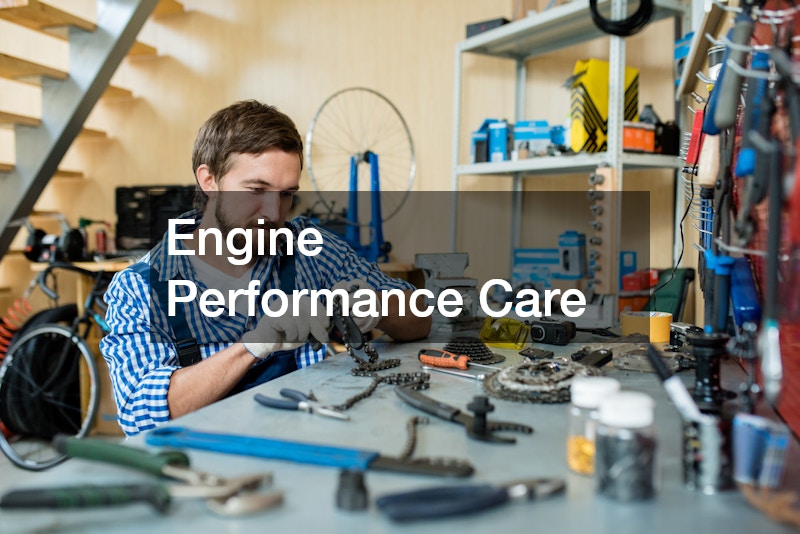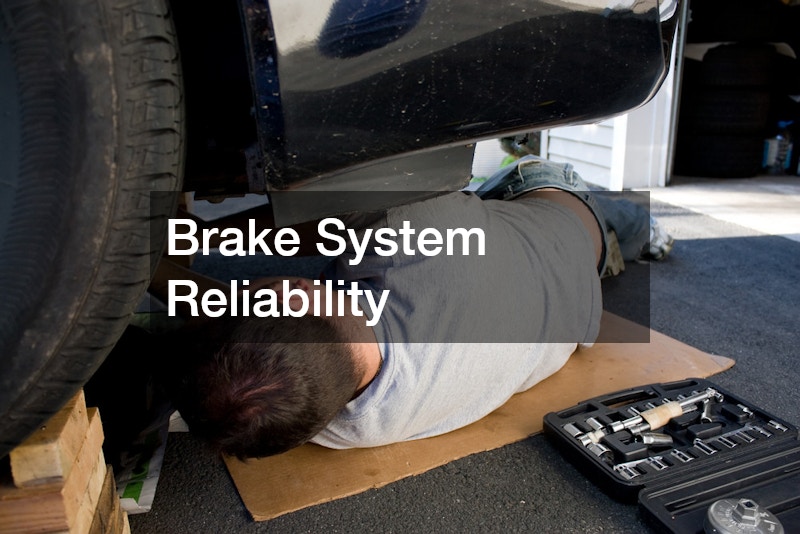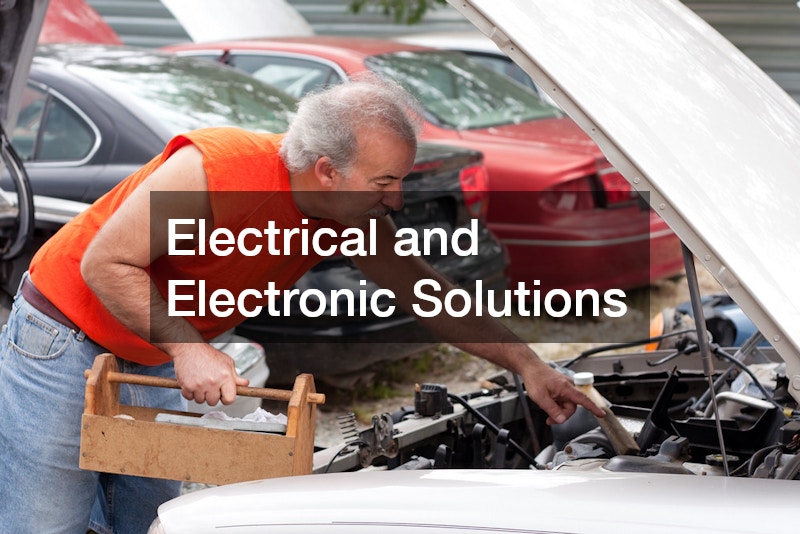Moving through life on four wheels seems simple until you realize how many moving parts, fluids, sensors, and circuits keep your vehicle operating in harmony. Neglect even one of them for too long and the chain reaction can strand you on the shoulder or drain your savings on emergency fixes. Partnering early with a trusted general auto mechanic transforms car ownership from a reactive scramble into a predictable routine built around safety, savings, and confidence.
Unlike a quick-lube franchise that only performs a handful of tasks, a seasoned professional and local auto repair shop examines the entire vehicle every time it rolls into the bay. They track maintenance intervals, driving habits, and manufacturer service bulletins and then build a long-term plan that matches your budget. By cultivating a steady relationship with a local auto repair shop you create a maintenance history that boosts resale value and supplies solid documentation for warranty claims or insurance disputes.
A general auto mechanic also serves as a teacher and translator, breaking down complex data into plain language so you can make informed decisions rather than guessing at the source of a dashboard warning light. The sections that follow explore the full range of services available, each explained in practical terms that you can apply the very next time you drop your keys at the counter.
Preventive Maintenance Fundamentals
Oil changes, filter replacements, and tire rotations are the rhythm of responsible ownership. When these tasks happen on schedule, heat, dirt, and friction never get a foothold. A general auto mechanic inspects fluid color, gasket condition, and belt tension at every visit, logging the details so nothing slips through the cracks. That running history becomes the playbook for future decisions, revealing patterns such as premature tire wear or coolant loss long before they become crises.
Beyond the obvious fluids, your technician checks spark plugs, cabin air filters, and battery terminals even when you only came in for a simple oil change. They also track software updates released by automakers, ensuring engine and safety modules operate on the latest calibration files. This proactive mindset turns ordinary maintenance into an evolving defense plan, one that saves you from paying dealership labor rates or scrambling for parts that could have been replaced during scheduled downtime.
Diagnostic Expertise
Modern cars generate thousands of data points per second, and a generic code reader captures only a fraction of the picture. Skilled technicians dive deeper by pulling freeze-frame snapshots, running bidirectional commands, and comparing real-time sensor outputs to factory specs. When a rough idle or drop in fuel economy surfaces, they overlay fuel-trim graphs with ignition timing and intake vacuum readings to pinpoint the culprit instead of throwing parts at the problem.
A well-equipped shop also owns oscilloscopes, thermal imaging cameras, and smoke machines for finding vacuum leaks and electrical shorts that generic tools miss. Once the root cause is confirmed, the mechanic explains options in everyday language, balancing cost, longevity, and warranty implications so you can decide what makes sense. That level of clarity removes the guesswork often associated with auto repair and helps you reject unnecessary upsells.
Engine Performance Care
Your engine is a symphony of combustion events occurring thousands of times per minute. Over time plugs erode, valves collect carbon, and timing chains stretch, all of which erode efficiency ounce by ounce. A general auto mechanic performs compression tests, boroscope inspections, and injector balance exams to gauge internal health without tearing the motor apart. When misfires appear, they examine coil pack output, fuel pressure consistency, and even software glitches that can mimic mechanical failure.
Should a head gasket fail or bearings seize, the same shop can coordinate machining, parts sourcing, and reassembly, streamlining what would otherwise be a logistical nightmare. They document torque specs, lubrication points, and break-in procedures, safeguarding the investment and the warranty tied to every new fastener and seal. Maintaining an open channel with the technician allows you to schedule repairs around work obligations, minimizing downtime and maximizing reliability.
Transmission Health
Every horsepower produced by the engine must pass through the transmission, making its upkeep just as crucial. Regular fluid exchanges carry away metal filings that cut into clutch packs and valve bodies. Your mechanic tests solenoid response times, adapts shift strategies through factory scan tools, and looks for early signs of overheating such as varnish buildup. Catching issues early can mean installing an external cooler rather than funding a full rebuild months later.
When serious damage surfaces, rebuilding in-house or ordering a remanufactured unit depends on budget, vehicle age, and intended lifespan. A general auto mechanic explains the pros and cons of each path, from warranty length to resale impact. They also ensure transmission control modules receive the latest firmware, preventing harsh shifts or gear-hunt complaints that plague older software versions.
Brake System Reliability
Stopping power is the single most important safety feature on any vehicle, yet drivers often ignore pulsations or squeaks until they worsen. During routine inspections the technician removes wheels, measures rotor thickness with micrometers, and checks caliper slide freedom. Brake fluid absorbs moisture over time, lowering boiling points and inviting corrosion, so flushing intervals are tracked in the same way mileage milestones are logged.
If grinding noises emerge, the shop addresses more than pads and rotors. They inspect hydraulic lines for bulging, evaluate ABS wheel-speed sensor signals, and replace hardware such as abutment clips that ensure pads retract fully. A carefully executed brake repair not only restores stopping distance but also extends rotor life, prevents uneven pad wear, and keeps electronic stability programs functioning at peak efficiency.
Suspension and Steering Integrity
Worn shocks, tired bushings, and loose tie-rod ends gradually change the car’s behavior until poor handling feels normal. That creeping decline chews through tires, saps driver confidence, and can even compromise automatic lane-keeping features that rely on predictable steering angles. During each service visit, the mechanic measures ride height, inspects strut mount bearings, and checks wheel bearings for play.
When components require replacement, they outline staged repair plans that allow you to address urgent safety items first while budgeting for less critical parts later. A fresh alignment follows every suspension service, resetting caster, camber, and toe to factory values. Proper alignment preserves new tires, reduces rolling resistance, and restores precise steering feel, especially valuable when navigating slick winter roads or towing heavy trailers.
Electrical and Electronic Solutions
A dead battery might be the headline, but the underlying story could involve parasitic draws, corroded grounds, or aging alternators. Technicians measure voltage drop across circuits, capture amperage spikes with clamp meters, and perform thermal scans to locate weak connections. When infotainment screens freeze or backup cameras go dark, a software reflash often resolves the glitch without expensive part replacements.
Beyond troubleshooting, a general auto mechanic installs upgrades such as dash cameras, wireless chargers, and advanced driver-assistant systems. Proper integration requires load calculations, correct fuse sizing, and configuration of CAN-bus messages, all of which prevent phantom warnings or warranty conflicts. With electronics representing a growing share of vehicle complexity, partnering with experts rather than hobbyists keeps the cabin tech-savvy and road-worthy.
Heating and Cooling Services
Neglecting climate control is more than a comfort issue; defrosters clear windshields, and overheated engines can fail catastrophically. Shops perform pressure-balance tests, introduce UV dye to reveal leaks, and verify thermostat opening temperatures against spec. Because refrigerant blends differ by model year, technicians source the exact replacement gas to prevent compressor damage and maintain legal compliance.
Cooling system flushes remove mineral deposits that clog narrow passages within the radiator and heater core. By replacing coolant before additives break down, they halt galvanic corrosion, extending water-pump bearing life. The result is a cabin that cools quickly in summer, defogs rapidly in winter, and an engine that maintains its ideal operating temperature year-round.
Glass and Visibility Services
Cracked windshields undermine structural integrity and can misalign heads-up display projections. Your shop partners with certified glass installers who replace panes on-site and recalibrate forward-facing radar and camera modules immediately afterward. They also consult on choosing an auto window tinting service, explaining heat-rejection ratings, ultraviolet protection, and state regulations that govern permissible shade levels.
After sampling legal guidelines many drivers opt for a premium auto tinting service that combines ceramic particles with lifetime warranties against discoloration. The mechanic verifies defroster grid continuity and antenna amplification after installation, catching issues before the vehicle leaves the bay. These extras transform a simple glass visit into a comprehensive visibility upgrade that enhances comfort and preserves interior materials.
Cosmetic and Body Upkeep
Small dents invite rust, and mismatched panels create wind noise that sounds like an engine problem. While heavy collision work belongs to an auto body shop, many general repair facilities offer paintless dent removal, headlight restoration, and corrosion-proofing packages. Addressing those cosmetic concerns early protects trade-in value and prevents structural rust that eventually threatens suspension and subframe integrity.
Interior care matters too. Technicians treat leather, repair minor upholstery tears, and replace worn weather-stripping that can admit water. By bundling mechanical and cosmetic upkeep, owners save time scheduling separate appointments and keep the vehicle’s aesthetic appeal aligned with its mechanical health.
Accessory Upgrades and Personalization
Today’s drivers seek more than transportation; they crave connectivity, convenience, and individuality. Installing auto accessories such as roof racks, towing hitches, or LED lighting might seem straightforward, but modern electrical systems are sensitive to voltage fluctuations. A general auto mechanic calculates load requirements, selects appropriate relays, and updates control modules to prevent bulb-out warnings or CAN-bus errors.
Performance-minded owners often request cold-air intakes or cat-back exhausts. The technician explains how each modification affects emissions compliance, fuel mapping, and power delivery. They can also recalibrate engine control units so new components work harmoniously, avoiding check-engine lights or drivability issues that online instruction videos rarely address.
Fleet and Commercial Truck Support
Businesses live and die by uptime, and juggling multiple truck repair companies quickly becomes chaotic. By consolidating service under one roof, a fleet manager gains uniform maintenance records, predictable billing cycles, and a single point of contact for after-hours emergencies. ASE-certified diesel specialists at the same facility handle DOT inspections, air-brake adjustments, and hydraulic system bleeding for bucket trucks and heavy haulers.
When a key vehicle limps in late at night, the shop crews prioritize it to minimize lost revenue. They stock common parts in-house, coordinate with a nearby truck repair garage for specialty machining, and complete paperwork required by state regulators. That holistic approach transforms routine service into a strategic partnership rather than just another line item on the ledger.
Collision Coordination and Legal Support
Even a minor fender bender can unleash a blizzard of phone calls, estimates, and liability questions. A shop that understands insurance protocols works alongside adjusters to ensure every damaged sensor, bracket, and wiring harness makes it onto the claim. They schedule mechanical inspections both before and after body work so alignment specs, radar calibrations, and safety-system tests receive proper documentation.
When liability disputes escalate, detailed service logs provide powerful evidence for car accident lawyers seeking to demonstrate responsible vehicle upkeep. The technician’s ability to explain repair decisions under oath or via affidavit adds professional credibility, often expediting settlements and minimizing courtroom drama.
Roadside and Emergency Assistance
Breakdowns rarely occur in well-lit places during daylight hours. Many full-service shops partner with towing companies to offer 24-hour support, dispatching a flatbed within minutes using GPS tracking. Once the vehicle arrives, the general auto mechanic, already familiar with its history, jumps straight into diagnostics, ordering parts overnight if needed. This seamless handoff trims days off repair timelines compared to unfamiliar facilities that must start from scratch.
Membership packages may include jump-starts, spare tire installations, lock-out assistance, and discounted labor on any follow-up fixes. Having the same team oversee emergency response and subsequent repairs ensures consistent quality and eliminates the finger-pointing that can arise when multiple vendors touch a single problem.
Owning a vehicle becomes far less stressful when you swap the emergency mindset for a partnership approach. A seasoned general auto mechanic views every car as an interconnected system, catching small deviations before they cascade into wallet-draining failures. From routine oil changes and precision brake repair to coordinating windshield tint regulations and managing forklifts for a truck repair garage, their expertise stretches well beyond turning wrenches.
Choosing the right general auto mechanic means securing a counselor who speaks the language of auto accessories, understands how to satisfy insurance adjusters, and collaborates with truck repair companies when your livelihood depends on maximum uptime. By investing in this relationship, you safeguard safety, preserve resale value, and gain peace of mind every time the engine starts and the wheels roll toward your next destination.







